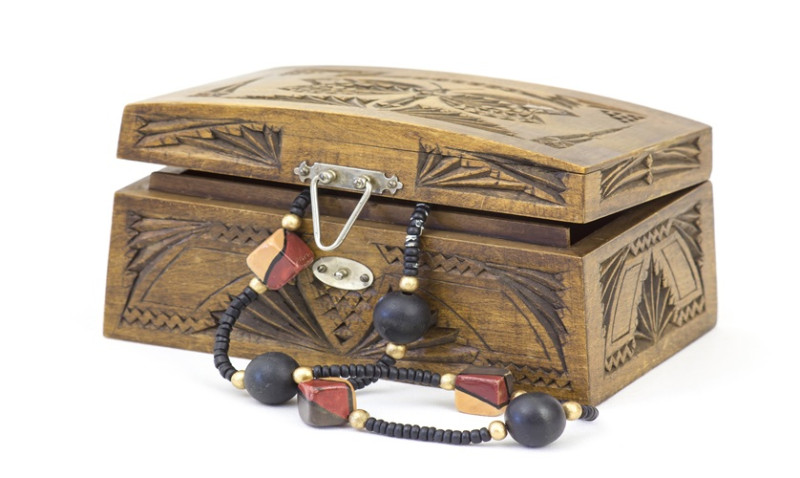
In today’s fast-paced world of entrepreneurship, success stories often come from the most unexpected places. One remarkable story is that of Liam Parker, a 26-year-old millionaire jeweler from Birmingham, who has built a luxury jewelry brand worth over £5 million from scratch. Starting in his teens, Liam turned his passion for craftsmanship and design into a thriving business, blending traditional skills with modern branding platforms. Now, he’s sharing his top tips for others looking to kickstart their own ventures—especially those with a creative edge or manual talent, such as tradesmen, designers, or DIY enthusiasts across the United Kingdom.
Whether you're a budding interior designer, a professional tradesman thinking of branching out, or simply someone passionate about creating with their hands, Liam's journey offers invaluable insights. By focusing on craftsmanship, branding, and smart business fundamentals, his experience can guide your path to building a profitable enterprise.
1. Start With Passion, Not Perfection
Liam emphasizes that passion should be the foundation of any business. “Don’t wait until you have it all figured out,” he says. “Start with what you love, what you're good at, and improve as you go.” This is a crucial point for DIY enthusiasts and skilled tradespeople in the UK who may lack a formal business background but excel in their crafts.
He began by experimenting with basic tools at home, creating custom rings and pendants for friends. Over time, he taught himself advanced techniques and slowly built a clientele. The key was to launch first, validate the idea in the market, then iterate based on feedback.
This advice is golden for young entrepreneurs or tradesmen who dream of running their own operation. Even starting small—restoring furniture, offering bespoke installations, or creating handmade interiors—can evolve into something massive if driven by passion and authenticity.
2. Learn the Business Side, Bit by Bit
While creativity is essential, understanding the business side is equally critical. Liam admits that, initially, he struggled with managing inventory, tracking costs, and pricing his work. “I knew how to make beautiful jewelry,” he says, “but I had to teach myself how to make money from it.”
He recommends using simple accounting apps like QuickBooks or FreeAgent at first. These tools help keep track of costs, earnings, taxes, and customer invoices—often overlooked by creatives starting out.
Moreover, he encourages joining entrepreneur forums or local workshops that help aspiring business owners understand business models, marketing basics, and profit margins. Many UK councils offer free or low-cost resources for small business owners and tradespeople.
3. Build Your Brand Online and Offline
One of the main accelerators of Liam’s success was social media. Showcasing his work on Instagram and TikTok allowed him to reach a broader audience and build trust through behind-the-scenes content. “People don’t just buy the product,” he says, “they buy the story.”
He recommends tradespeople or DIY pros document their projects—before-and-after home transformations, tool tips, or even real-time installs. These become not only proof of work but engaging social content that draws in new clients and keeps your current following interested.
Pair digital presence with traditional approaches as well. Branded business cards, networking at local events, and customer referral cards can still be incredibly powerful in the UK market, especially in trades and service-oriented work.
4. Focus on Quality and Customer Satisfaction
“Word of mouth built my business,” Liam shares. “People talk when you exceed their expectations.” He ensured that every piece he sold was high-quality, delivered on time, and beautifully presented, even when he was just starting out in a local workshop.
For tradesmen and DIY enthusiasts entering business, this means never compromising on workmanship, even on small jobs. Use quality materials, follow up with clients, and always aim to deliver more than promised. Over time, this builds your reputation and brings repeat business.
Online reviews, testimonials, and referrals can become some of your strongest marketing tools, so treat every customer like they’re the key to your next project—which they just might be.
5. Don’t Be Afraid to Charge What You're Worth
One of the hardest lessons for Liam was understanding how to price his work properly. “When you’re new, you fear charging too much,” he says. “But if you undervalue yourself, you’ll burn out and struggle to grow.”
This is especially important for those in construction, painting, joinery, interior design, or installation work. Many skilled professionals in the UK underprice themselves due to fear of losing clients, not realizing that price often reflects value in the market’s eye.
He suggests doing competitor research, factoring in all your time, materials, and operational costs, and charging sustainably. Transparency with clients about what’s included in your price can prevent misunderstandings and build trust.
6. Reinvest Your Profits
As his business picked up, Liam didn’t rush to spend the profits on flashy cars or luxury living. Instead, he reinvested in better equipment, materials, and workspace. “Every pound I made went back into growing the brand,” he recalls.
Whether you're building a furniture brand, launching a design consultancy, or hands-on in renovation works, equipment and training can drastically increase your speed and precision. Investing in tools or additional trade certifications can open new income opportunities in the UK market.
In the early days, it’s better to grow stable than to grow fast—focus on expanding your capabilities, not your lifestyle.
7. Network and Find Mentors
Liam strongly believes in learning from others. He regularly reached out to successful entrepreneurs, even outside his own industry, to learn about leadership, growth, and strategy. “You’d be surprised who replies on LinkedIn,” he laughs.
In the UK, organisations like the Federation of Small Businesses (FSB), Enterprise Nation, and local Chambers of Commerce are great ways to meet business owners and potential clients. You can even join trade-specific groups or online communities to bounce ideas and seek advice.
A mentor who’s already achieved what you're pursuing can drastically shorten your learning curve, help you avoid mistakes, and give you the confidence to take your business seriously.
Final Thoughts: Craft a Vision, Then Work Toward It
Liam’s parting recommendation is simple but profound: “Dream big, but start small and be consistent.” Every business begins with action—the first sale, the first customer, the first review. You don’t need thousands of followers or a fancy workshop to begin.
Whether you're reupholstering furniture in your garage, installing lighting as a side hustle, or dreaming of an interior consultancy in the Cotswolds, what matters is consistency and quality. The tools, technology, and audience are already at your fingertips in the UK marketplace—now it’s about taking that first step with confidence.
Liam Parker’s journey from teen hobbyist to millionaire jeweler proves that with grit, patience, and a clear plan, anyone can turn their craft into a business. So grab that drill, sketch that design, and start building your dream one client at a time.







